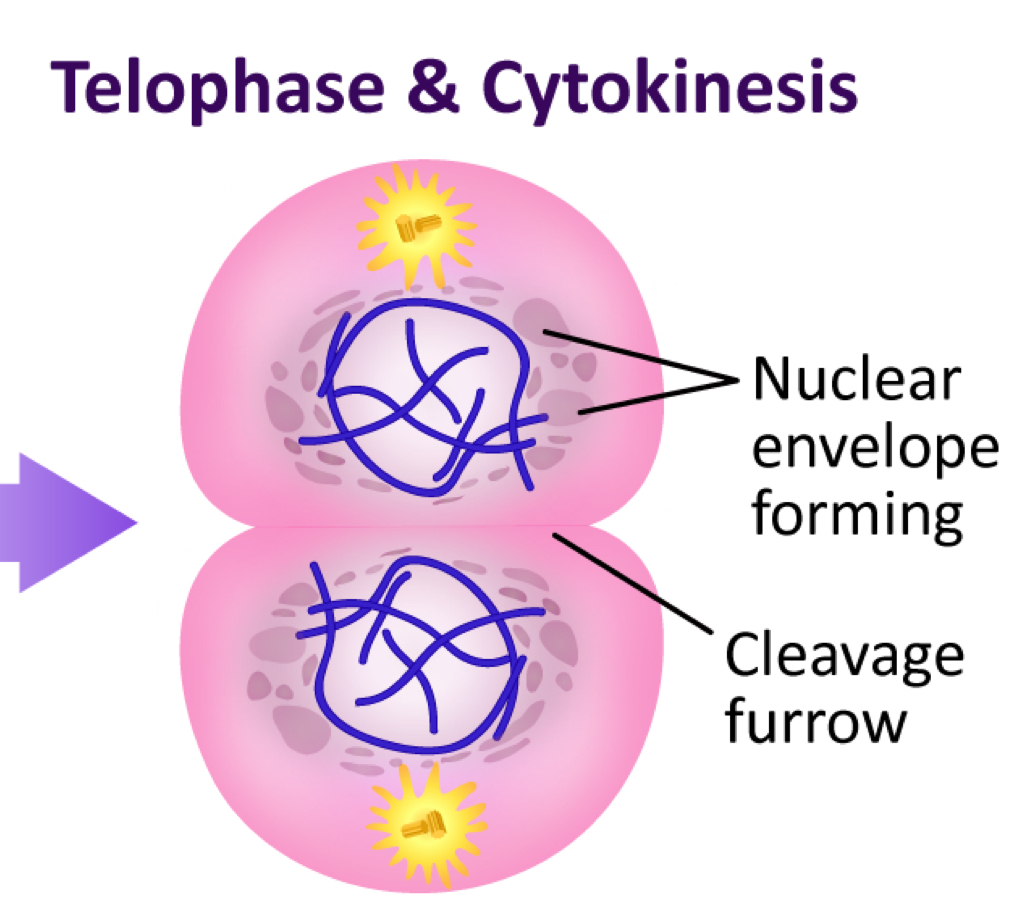Chromosome and Mitosis Review
1/16
There's no tags or description
Looks like no tags are added yet.
Name | Mastery | Learn | Test | Matching | Spaced |
|---|
No study sessions yet.
17 Terms
How did you develop from a single celled zygote to an organism with trillions of cells?
Occurred through repeated cycle of mitosis (a type of cell division where one cell divides into two genetically identical daughter cells
How does the genetic information in one of your body cells compare to that found in other body cells?
Essentially identical to every other body cell because all these cells arose from the same original zygote through mitosis
How is cell division important to a single-celled organism?
It is the primary method of reproduction; allows a single cell to produce a new, identical organism, growing the species through asexual reproduction, also known as binary fission in some cases
What are the two major phases of the cell cycle?
Interphase
Mitotic (M) Phase
Lost the three functionally distinct stages of Interphase.
G1 Phase (Gap 1)
S Phase (Synthesis)
G2 Phase (Gap 2)
G1 Phase of Interphase
The cell grows and carries out its normal functions, preparing for DNA synthesis
S Phase of Interphase
The cell replicates its DNA, resulting in two copies of each chromosome.
G2 Phase of Interphase
The cell continues to grow and produces proteins necessary for mitosis.
Why is it important for DNA to be replicated prior to cell division?
To ensure that each new daughter cell receives a complete and identical copy of the cell’s genetic instructions
In general, how do chromosomes move in a cell?
Through the action of the mitotic spindle (structure made of microtubules)
What would happen if the cell were unable to control this process?
Chromosomes can be distributed unequally to the daughter cells, leading to serious consequences like cancer or infertility, because the cells will have extra or missing chromosomes
Diagram of G2 Phase of Interphase
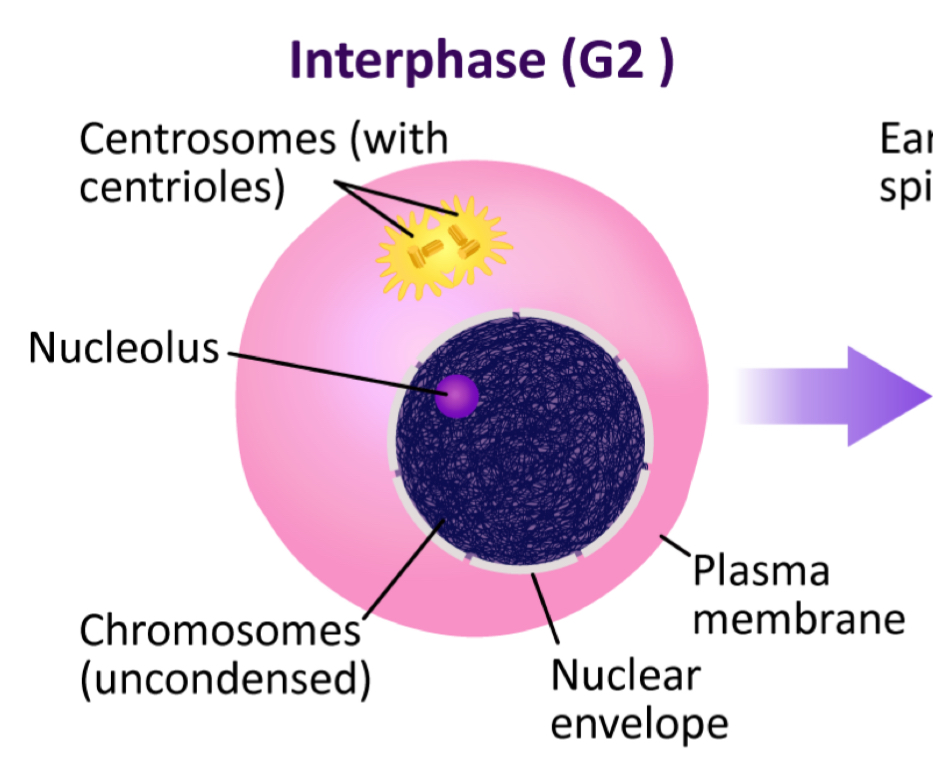
Diagram of Prophase
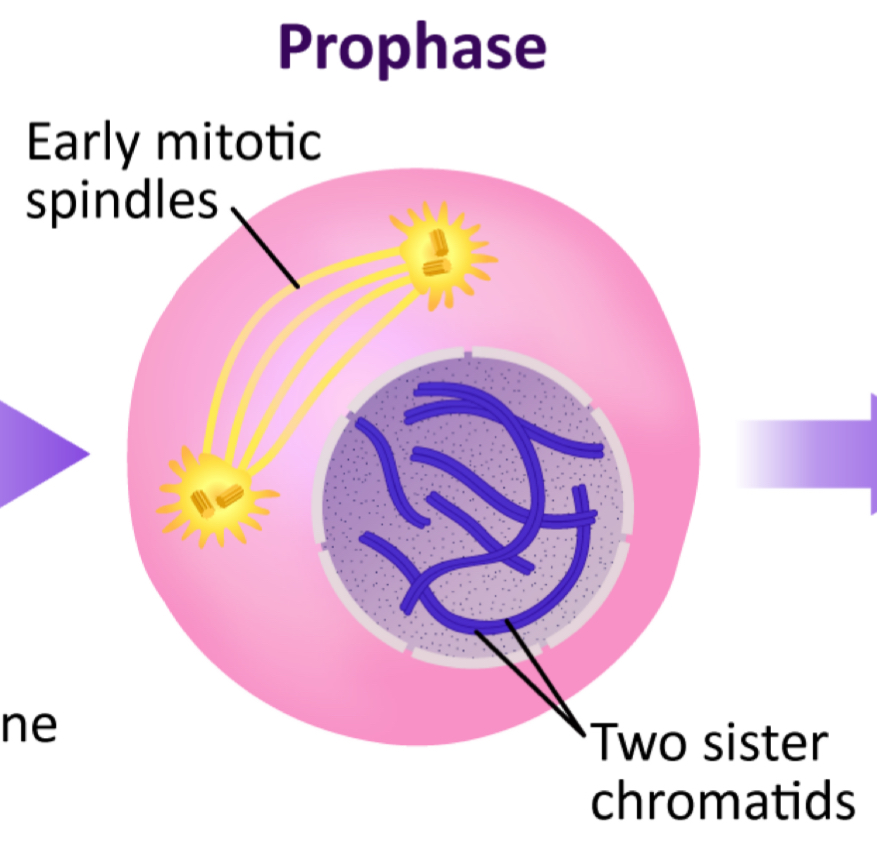
Diagram of Prometaphase
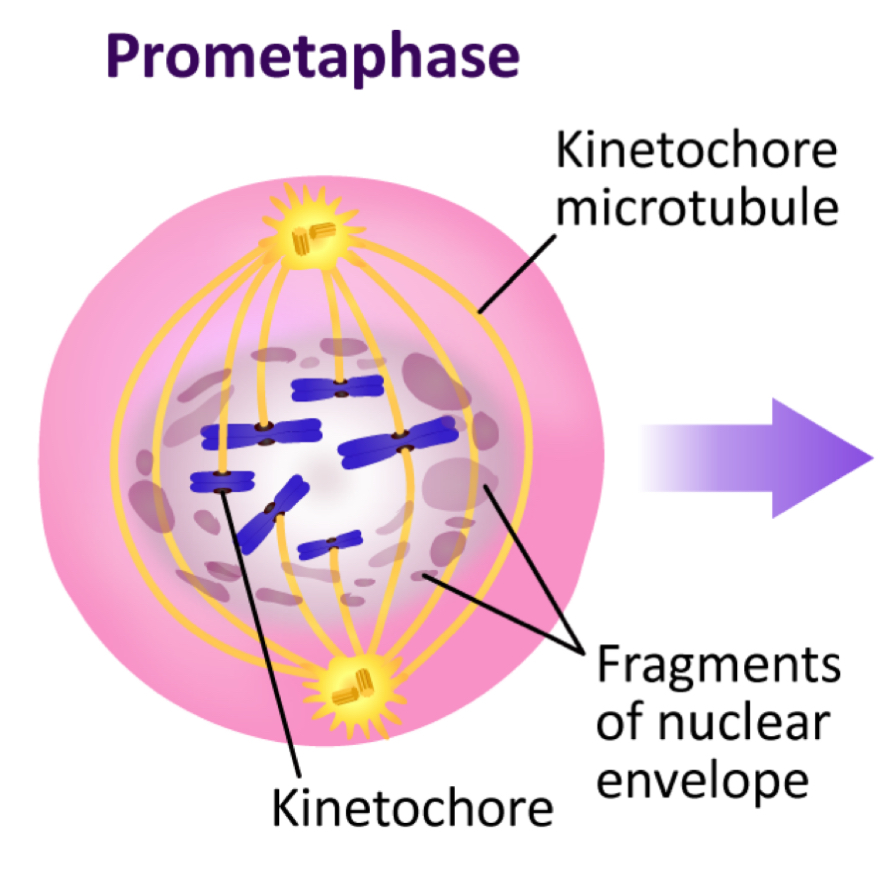
Diagram of Metaphase
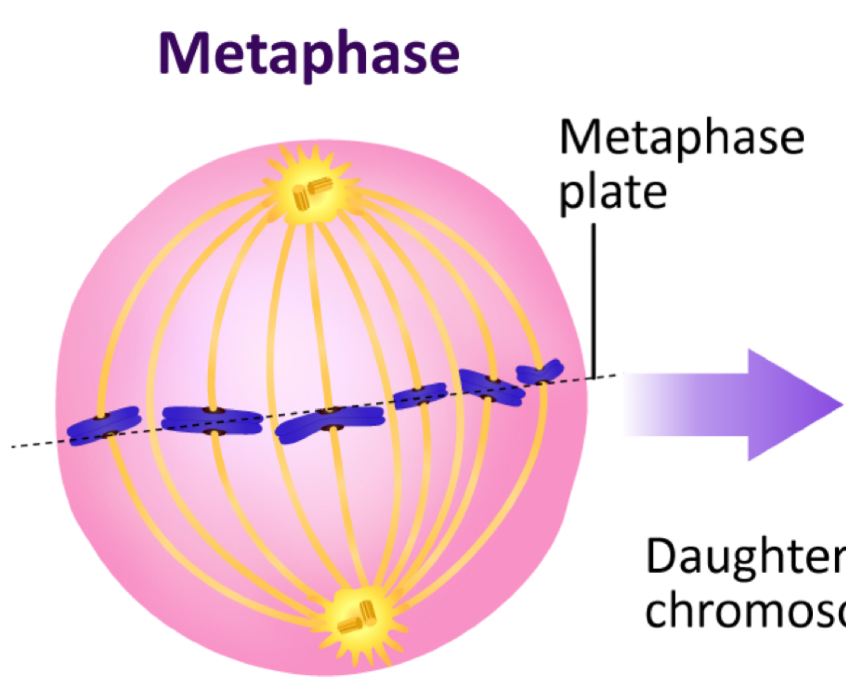
Diagram of anaphase
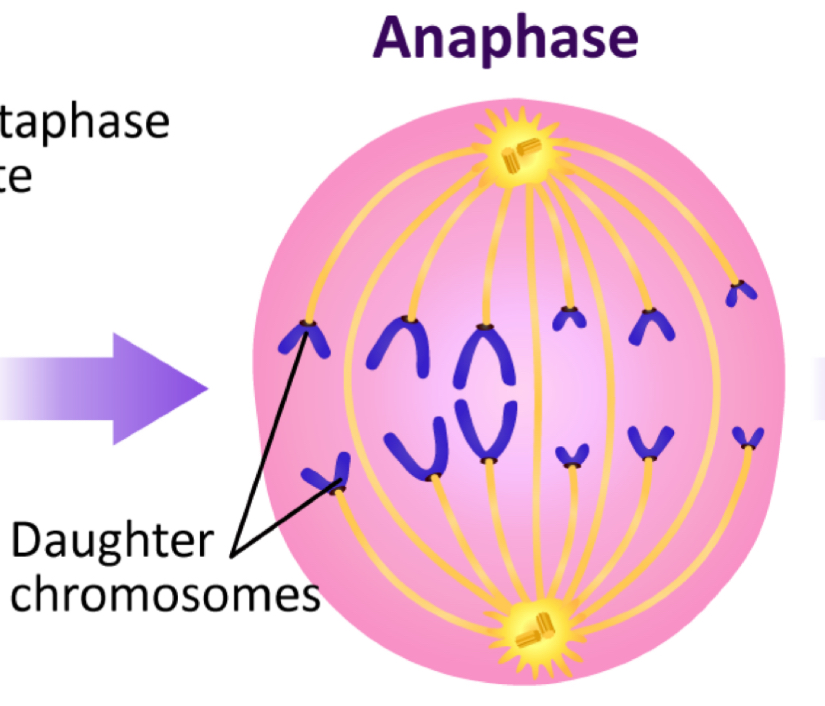
Diagram of Telophase & Cytokinesis
